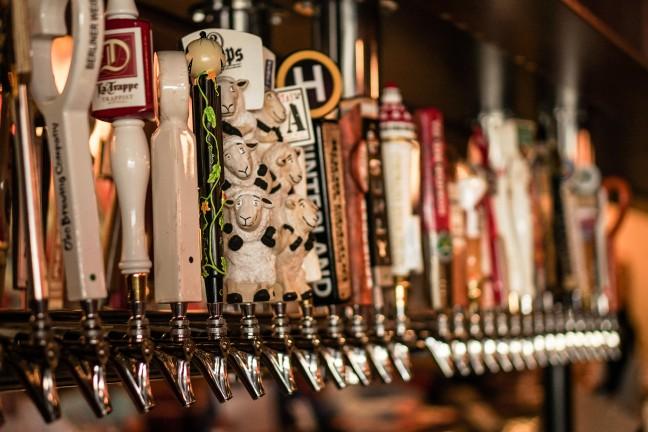Democrats and Republicans stand on the same side of the aisle when it comes to scaling back taxes for small breweries.
Legislation proposed to the U.S. Congress would decrease taxes on craft brewers, distillers, vintners and cider makers in order to help small businesses profit and encourage continued growth in the booming sectors.
Recently, the Craft Beverage Modernization and Tax Reform Act reached 100 cosponsors with Wisconsin support from both U.S. Senators Tammy Baldwin, D-Wisconsin, and Ron Johnson, R-Wisconsin.
David Canon, University of Wisconsin political science professor, said there are few bills which Baldwin and Johnson both agree on, so their support says a lot about its chances of passage.
Republicans support the measure because it reduces taxes while both Democrats and Republicans see it as a job creator since craft breweries have been a huge growth industry, not only in Wisconsin, but nationally.
“I think both parties see this as something that their constituents in general would be in favor in, so I think it boasts a good idea,” Canon said.
Canon said to aid small craft breweries, the excise tax on each barrel of beer for breweries producing more than 6 million barrels would remain the same, but would reduce significantly for breweries producing less than 60,000 barrels.
The act would reduce the excise tax from $18 a barrel to $3.50 for breweries producing less than 60,000 and by $2 on barrels up to the first 6 million. Canon said he thinks even big breweries like Miller and Budweiser will appreciate it because it could lead to $12 million worth of savings for them too.
Liz Henry, UW Renk Agribusiness Institute associate director and a small business bourbon producer, said it will also have a huge impact on the craft distillery industry by reducing the excise tax by almost 80 percent on the first 100,000 gallons from $13.50 to $2.70 per gallon of proof spirits.
Henry and her husband own Henry Farm Family Spirits in Dane, Wisconsin. As a part of a three-generation farming family, they were already growing seed corn six years ago when they decided to start producing J. Henry and Sons bourbon with it. After five years of aging, they started selling this year and are now in most Madison area liquor stores, bars, restaurants and grocery stores.
Henry said since they refuse to put anything on the market younger than five years old, they were not generating any revenue until this year, but still had to pay overhead and tax during the aging period. Henry said as a small craft distiller producing about 8,000 to 10,000 gallons annually, the excise tax cut would help and save them more than $100,000.
“If we were able to hold on to the $100,000 … we would … reinvest it in our business and/or put it into purchasing more barrels, purchasing more space, having people doing more work on the farm,” Henry said. “From an accounting perspective, it’s … a reinvestment effort; it’s a way to keep money in the area and really create an environment of growth.”
Steven Deller, UW agricultural and applied economics professor, said a growing consumer interest in novelty foods is causing the craft beverage industry to expand. He said while the craft beer industry has been growing for some time, it is now beginning to spill over into the wine and spirits sectors.
Many of these small craft business owners start off making their alcoholic products as a hobby before deciding to open a business, so there is a level of passion in their work distinct from bigger alcoholic companies, Deller said. With people willing to pay a little extra to know where their alcohol came from, legislators are considering to cut craft excise taxes in order to give the small businesses room to increase their profits.
Deller said he does not believe the legislation will encourage more people to get into craft beverage businesses, but said it will help the existing small businesses.
“For these small businesses, this is a good thing, but it’s not a magic bullet,” Deller said. “If these businesses are profitable, this will make them more profitable. If these businesses are losing money, they will probably continue to lose money, but it will take a little bit of pressure off of them.”
Margie Lehrman, American Craft Spirits Association executive director, said the organization is excited about the tax reform act because it could help many small craft distillers in several facets of their businesses.
She said with the additional money, the craft distillery businesses could help the local economy at the hiring level, expand their tasting rooms and buy more locally-sourced crops for production. She said the craft distillery business has been working with the beer and wine industry in order to have a united cause when facing Congress.
“So the bottom line is it really will impact everyone and have a successful result for everyone,” Lehrman said.














